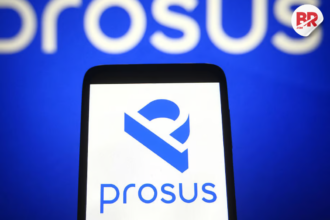
Biocon, a global leader in biopharmaceuticals, is making waves in the ophthalmology field with the launch of Yesafili, a biosimilar to Regeneron’s EYLEA, one of the most prescribed drugs in the U.S. for retinal diseases. This new treatment, a vascular endothelial growth factor (VEGF) inhibitor, could reshape the landscape of eye care, offering a more affordable option for patients and healthcare providers alike.
Yesafili: The Biosimilar That Could Change Everything
Yesafili is a biosimilar of EYLEA, a drug that’s been crucial in treating diseases like age-related macular degeneration (AMD) and diabetic macular edema (DME).

Both of these conditions can lead to significant vision loss, making the availability of affordable treatment critical. By introducing Yesafili, Biocon hopes to provide patients with a reliable, high-quality alternative to EYLEA, helping to reduce costs without compromising on care.
The company recently reached a settlement with Regeneron, which had ongoing litigation concerning a U.S. patent dispute. Under this settlement, both parties have agreed to dismiss litigation related to U.S. patent no. US11084865.
This includes the pending appeal at the United States Court of Appeals for the Federal Circuit and a case in the U.S. District Court for the Northern District of West Virginia. The settlement paves the way for Yesafili to enter the U.S. market as early as the second half of 2026.
What This Means for Biocon and the U.S. Market
For Biocon, this is a significant milestone. Shreehas Tambe, the CEO & Managing Director of Biocon Biologics, shared his excitement about the agreement, stating that it clears the path for Yesafili to become one of the first interchangeable biosimilars to EYLEA in the U.S.
This strategic entry into ophthalmology expands Biocon’s footprint in the country and strengthens its position as a global leader in biosimilars.
Yesafili’s approval will be a game-changer for the U.S. healthcare system, as it offers a much-needed alternative to EYLEA at potentially lower prices. The move also aligns with Biocon’s mission to increase access to life-changing treatments for patients, particularly in therapeutic areas like ophthalmology that have been under-served by affordable options.
The Canadian Launch: A Milestone for Biocon
Biocon has also secured approval to launch Yesafili in Canada no later than July 2025. This marks an important step in the company’s expansion beyond the U.S., where regulatory hurdles and patent disputes often complicate drug launches. By securing early access to markets in both North America, Biocon is poised to make a significant impact on the global biosimilars market.
Also Read: Biocon FDA Approval JOBEVNE Biosimilar Could Rewrite Cancer Care Costs
Financial Performance and Market Outlook
Despite this exciting new development in ophthalmology, Biocon recently reported a sharp decline in net profit, which slumped by a staggering 96.2% to Rs 25.10 crore. This drop comes despite a 6.32% increase in net sales, reaching Rs 3,773 crore for the third quarter of December 2024 compared to the previous year.
However, the introduction of Yesafili could help turn the tide by expanding Biocon’s product offerings and solidifying its reputation in the growing biosimilars market. As healthcare costs continue to rise globally, the demand for affordable and effective alternatives like Yesafili is expected to increase, helping to drive future revenue growth.
Biocon’s Yesafili biosimilar is more than just a competitor to EYLEA; it represents a major step forward in making ophthalmology treatments more accessible and affordable.
With its potential U.S. launch in 2026 and a confirmed Canadian release by mid-2025, Biocon is poised to revolutionize the landscape of retinal disease treatment. This settlement with Regeneron not only clears legal obstacles but also opens the door for a future where Yesafili can help more patients retain their vision without the financial burden of costly medications.












